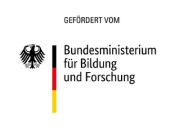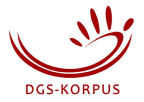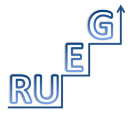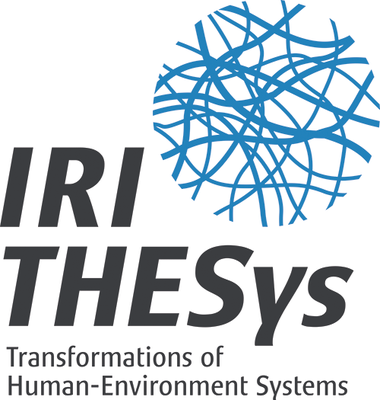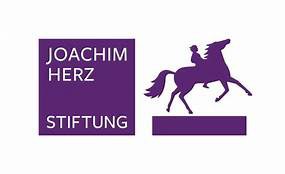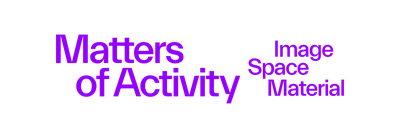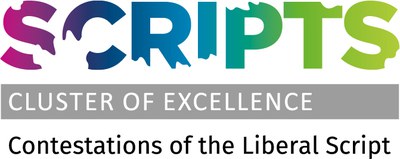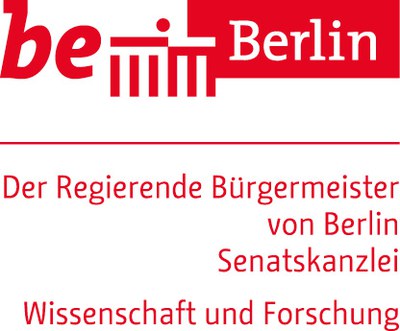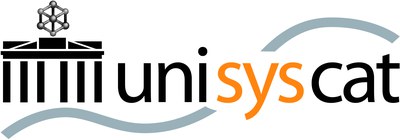After Nature
The Humboldt Lab’s inaugural exhibition deals with the interactions between climate change and biodiversity loss as well as the global crises of democratic principles of order.
The Humboldt Lab’s inaugural exhibition deals with the interactions between climate change and biodiversity loss as well as the global crises of democratic principles of order.
Global environmental changes not only pose a threat to the very basis of our existence; they also alter the political and social structures of societies. The Humboldt Lab’s inaugural exhibition, “After Nature”, addresses the interactions between climate change and biodiversity loss as well as the global crises of democratic principles of order. The title of the exhibition refers both to the destruction of species and ecosystems and to the idea of “learning from nature”. As a modern cabinet of curiosities, the exhibition gathers research approaches to these topical questions and relates them to positions from the history of science.
The exhibition provides an insight into various areas of university work: from the research of the interdisciplinary Clusters of Excellence, which work across the universities, to student projects at individual institutes, from objects in the collections to university archives. Its content will be continuously updated and adapted within the scope of ongoing research projects in close collaboration with researchers from Berlin’s scientific landscape. The exhibition thereby symbolises the process of research, in which findings are ever changing and being expanded by new questions. Visitors thus experience a new exhibition time after time and can actively participate in research processes.
Visitors enter the exhibition through an interactive projection of a school of fish. The school reacts to their movements, retreating from the public and regrouping. This projection points in equal measure to both the sensitivity of ecosystems and biodiversity and the threats these face and the research approaches of the seven Berlin Clusters of Excellence:
MATH+
Matters of Activity
NeuroCure
Science of Intelligence
SCRIPTS
Temporal Communities
unisyscat
These interdisciplinary and cross-university research alliances use the school of fish to introduce us to their work: they think and research as a collective. This is because the global challenges of our present age can only be solved through subjects and institutions coming together.
In the main hall of the Humboldt Lab, objects from various teaching and research contexts hang from the ceiling in movable showcases. Their staging ties in with the history of the university collections of the Humboldt-Universität zu Berlin, which essentially date back to the cabinet of curiosities in the Berlin Palace. The principle of these historical cabinets of curiosities and rarities, so-called cabinets of wonder, was, for one thing, about amazement and the associative connection of different things. Instead of fixed positions, the flexible arrangement of the showcases in the Humboldt Lab causes new and ever-changing connections to be formed between the objects again and again. Histories told by many voices reveal how things and the knowledge associated with them change depending on the point of view.
Following on from the presentation of individual research objects comes a more in-depth engagement with related bundles of objects and their contexts of origination. Three archives of the Humboldt-Universität zu Berlin are juxtaposed in order to mutually cast light on one another: the Janheinz Jahn Archive with documents on neo-African literature, the Sound Archive with voice recordings of prisoners of war from the two world wars and with historical German dialect recordings, and the Hahne-Niehoff Archive with historical ethnological photographs. This juxtaposition reveals different representations of that of “one’s own” and the “other”, as well as the societal and political contexts of academic collecting.
Das Humboldt Labor beherbergt die Ausstellungs- und Veranstaltungsräume der Humboldt-Universität zu Berlin im Humboldt Forum, vertreten durch die Präsidentin, der Humboldt-Universität zu Berlin (HU), Prof. Dr. Julia von Blumenthal.
An der Auftaktausstellung „Nach der Natur“ waren die unten stehenden Personen und Partner*innen beteiligt. Das derzeitige Team des Humboldt Labors entwickelt die Ausstellung fort.
Albrecht Daniel Thaer-Institut für Agrar- und Gartenbauwissenschaft, Moorarchiv — Prof. Dr. Jutta Zeitz
Institut für Archäologie, Sudanarchäologische Sammlung & Archiv — Dr. Cornelia Kleinitz
Institut für Biologie, Späth-Arboretum — Dr. Thomas Janßen — Dr. Anika Dreilich — Heidrun Kostial
Institut für Biologie, Zoologische Lehrsammlung — Prof. Dr. Gerhard Scholtz — Ines Drescher
Center for Applied Statistics and Economics (C.A.S.E.), Computermuseum — Prof. Dr. Wolfgang Karl Härdle
Institut für deutsche Literatur, Arbeits- und Forschungsstelle Privatbibliothek Christa und Gerhard Wolf — PD Dr. Birgit Dahlke
Institut für Europäische Ethnologie, Landesstelle für Berlin-Brandenburgische Volkskunde, Hahne- Niehoff-Archiv — PD Dr. Leonore Scholze-Irrlitz
Institut für Physik, Kristallographische Lehrsammlung — Dr. Holm Kirmse
Institut für Rehabilitationswissenschaften, Heilpädagogisches Archiv — Prof. Dr. Vera Moser — Prof. Dr. Oliver Musenberg — Lea Schäfer
Janheinz Jahn-Archiv — Prof. Dr. Susanne Gehrmann Lautarchiv — Herdis Kley — Prof. Dr. Sebastian Klotz
Sammlungen des Geographischen Instituts — Dr. Mohsen Makki — Gerd Schilling — Prof. Dr. Christoph Schneider
Universitätsarchiv — Dr. Aleksandra Pawliczek
Universitätsbibliothek, Historische Sammlung — Dr. Yong-Mi Rauch
Externe öffentliche Leihgeber
Berliner Medizinhistorisches Museum der Charité Bundesanstalt für Geowissenschaften und Rohstoffe, Berlin
Museum für Naturkunde, Berlin, Leibniz-Institut für Evolutions- und Biodiversitätsforschung
Sanitätsakademie der Bundeswehr, München
Staatsbibliothek zu Berlin – Preußischer Kulturbesitz
Stiftung Schloss Friedenstein Gotha
Technische Universität Bergakademie Freiberg
Technische Universität Berlin
Technische Universität Dresden
Universität Greifswald
Anonymer Leihgeber / Climate Camp Working Group – und John Jordan
Dr. Martin Baumgart, Bonn
Fernando Sanchez Castillo
Familie Dierks
Familie Klütsch, Wesseling
Robert Matthusen und LOOKS Filmproduktionen GmbH
Undocumented Migration Project / Jason De Leon, Los Angeles, Kalifornien, USA
Berlin University Alliance im Rahmen der Exzellenzstrategie von Bund und Ländern
Joachim Herz Stiftung, Hamburg
Zentrum für Militärgeschichte und Sozialwissenschaften der Bundeswehr, Potsdam
Das Team des Humboldt Labors ist angesiedelt am Hermann von Helmholtz-Zentrum für Kulturtechnik (HZK), einem interdisziplinären Zentralinstitut der HU
Prof. Dr. Wolfgang Schäffner, Direktor
Kathleen Waak, Geschäftsführung
